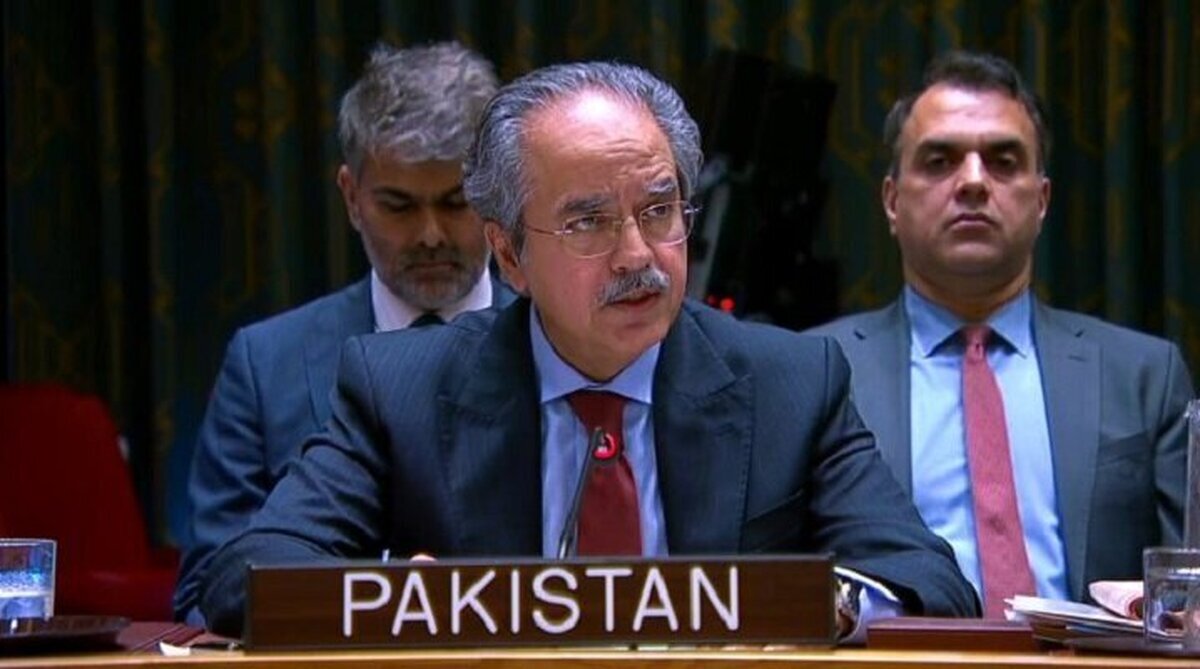EXCLUSIVE: Islamabad sees snapback sanctions as obstacle to dialogue, Pakistani scholar says
Dr. Qaiser Ahmed outlines Pakistan’s balancing act between East and West while preserving cooperation with Iran

TEHRAN – The reactivation of the snapback mechanism at the United Nations Security Council has once again placed Iran’s nuclear program at the center of global diplomatic tensions. Following the European trio’s move to reinstate sanctions, Tehran has sharply criticized the decision, while countries across the region are weighing the implications for stability, trade, and security.
Pakistan, situated at the crossroads of South and Central Asia and sharing a long border with Iran, faces unique challenges and opportunities in navigating this evolving landscape.
To better understand Islamabad’s perspective, the Tehran Times conducted an exclusive interview with Dr. Raja Qaiser Ahmed, Associate Professor of International Relations at Quaid-i-Azam University.
With extensive expertise in South Asian geopolitics, international law, and foreign policy, Dr. Ahmed provides an in-depth analysis of Pakistan’s stance on the snapback sanctions, the role of its strategic partners, and the broader regional and global consequences of the UNSC decision.
Below is the full text of the interview:
Given Pakistan's emphasis on diplomacy over coercion in addressing the Iranian nuclear issue, how does Islamabad perceive the re-imposition of snapback sanctions under UNSC Resolution 2231?
Pakistan has consistently emphasized diplomacy, dialogue, and regional stability over coercion. In this context, the re-imposition of snapback sanctions is perceived as a development that could complicate ongoing diplomatic efforts to maintain the Iran nuclear deal framework.
Islamabad advocates for measured engagement and urges all parties to prioritize constructive dialogue to prevent escalation and preserve regional peace.
How do Pakistan's strategic partnerships with China and Russia influence its position on the snapback mechanism, especially in contrast to its relations with Western powers?
Pakistan’s close strategic partnerships with China and Russia provide it with a perspective that prioritizes multilateralism and balanced regional engagement.
While maintaining cooperative relations with Western powers, Pakistan’s approach is informed by the emphasis on sovereignty, non-interference, and negotiation-led solutions, reflecting the diplomatic philosophies shared with its Eastern partners.
What are the potential implications of the snapback sanctions on Pakistan-Iran relations, particularly concerning trade, border security, and regional cooperation?
Snapback sanctions could have tangible effects on Pakistan-Iran ties, particularly in trade, border management, and broader regional cooperation.
Pakistan seeks to ensure that sanctions do not disrupt legitimate cross-border trade, energy projects, or collaborative efforts on security and counter-terrorism. Maintaining stable and mutually beneficial bilateral relations remains a core priority for Islamabad.
From a legal standpoint, how does Pakistan interpret the provisions of UNSC Resolution 2231, and what role does international law play in its diplomatic approach to the snapback sanctions?
From a legal standpoint, Pakistan upholds the provisions of UNSC Resolution 2231 while emphasizing the importance of international law as a guiding framework for diplomatic action.
Islamabad interprets the resolution in a manner that encourages engagement over punitive measures, stressing adherence to UN norms and the centrality of dialogue to resolve disputes.
How does Pakistan leverage multilateral platforms like the Shanghai Cooperation Organization (SCO) and the Organization of Islamic Cooperation (OIC) to advocate for its position on the snapback sanctions?
Pakistan actively engages with multilateral forums such as the Shanghai Cooperation Organization (SCO) and the Organization of Islamic Cooperation (OIC) to articulate its positions and advocate for diplomacy, regional stability, and constructive dialogue.
These platforms enable Pakistan to promote cooperative solutions while seeking consensus among regional and global stakeholders on the challenges posed by snapback sanctions.
Leave a Comment